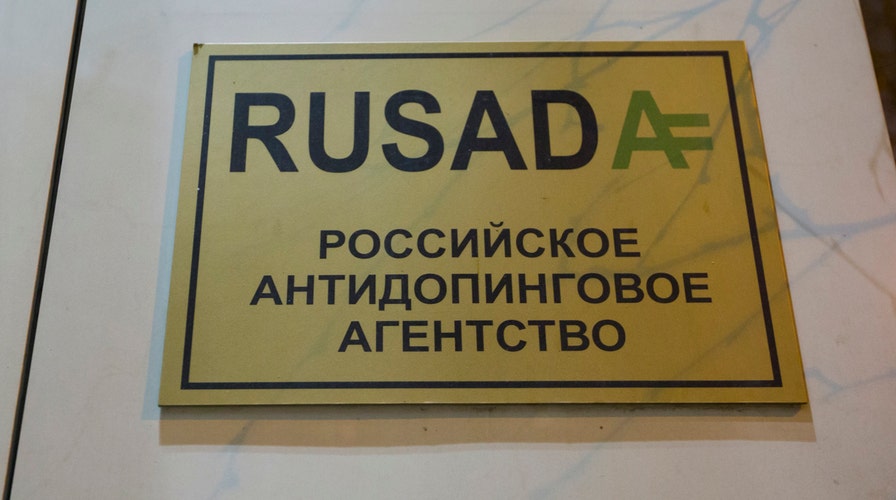The head of Russia's anti-doping laboratory has resigned, hours after it was stripped of its right to test samples amid accusations of Olympic sabotage, Russian Sports Minister Vitaly Mutko said Tuesday.
A World Anti-Doping Agency commission demanded a life ban Monday for lab director Grigory Rodchenkov, who was accused of covering up positive doping tests, extorting money from athletes and destroying 1,417 samples before inspectors visited.
Mutko tells Russia's Tass news agency that Rodchenkov "took the decision to resign to take all the negatives away with him" as the lab begins a reform process.
WADA suspended the lab's accreditation Tuesday and says samples there will be transported "securely, promptly and with a demonstrable chain of custody" to an alternative WADA-accredited lab.
Also Tuesday, the International Olympic Committee provisionally suspended the former global athletics chief Lamine Diack as an honorary member after he was placed under investigation in France on corruption charges.
The IOC executive board has also asked track and field's governing body to open disciplinary cases against Russian athletes, coaches and officials accused in the doping report.
The IOC says it would be ready to strip medals from any Russian athletes found guilty of doping violations.
The IOC board, acting on the recommendation of its ethics commission, approved Diack's provisional suspension.
Diack served as a full IOC member for 15 years until 2014, when he became an honorary member. He stepped down in August as president of the International Association of Athletics Federations.
Diack was detained last week and charged by French authorities with corruption and money laundering linked to the cover-up of Russian doping cases.
President Vladimir Putin's spokesman said the accusations of state-sponsored doping appear to be unfounded. Dmitry Peskov told journalists that whenever any charges are made, they must be based on some evidence.
"As long as there is no evidence, it is difficult to consider the accusations, which appear rather unfounded," Peskov said.
In Russian newspapers, many followed the government's lead in playing down the accusations from the World Anti-Doping Agency commission. The scandal was typically confined to a small item in the sports pages, with only two business papers and the sports dailies giving it front-page space.
"Are they taking Rio away from us?!" read the headline on the front page of Sport Express, referring to calls to ban Russia's track and field team from next year's Olympics.
Russia has for years reveled in its re-emergence as a sports superpower, the pinnacle coming when it topped the medals table at the last year's Sochi Olympics. That prestige is again in jeopardy, with the country's internal intelligence service, the FSB, accused of running surveillance on the Olympic doping lab.
Worse, it comes at a time when the country is already under pressure over its hosting of the 2018 World Cup amid the scandals rocking FIFA.
The reaction to Monday's track and field revelations among Russian officials was disjointed, with sentiments ranging from denial to suggestions of a Western political conspiracy.
Mutko, whose ministry is implicated in the report, even threatened to withdraw all government financial support for anti-doping work in protest at the report's accusations.
On state television, Mutko argued that the report presented "no serious objective evidence" of state involvement in doping and that its focus on Russia was unfair.
"Doping is not the problem of Russia," Mutko said. "Russia shouldn't be singled out. It's a world problem."
The head of Russia's medical agency, Vladimir Uiba, told Interfax he believed the report to be "politically motivated" and linked to international sanctions against Russia.
Acting president Vadim Zelichenok told The Associated Press on Monday that calls to ban Russia's track and field team from next year's Olympics are not "objective" because the federation leadership changed earlier this year, meaning some of the key figures identified in the WADA report are no longer employed.
The WADA commission recommended a lifetime ban for several athletes, including Olympic 800-meter champion Maria Savinova, who was filmed discussing doping methods. That follows a string of positive tests and doping bans that have caught dozens of Russian athletes, including five Olympic track and field gold medalists in the last two years.
The Associated Press contributed to this report.

